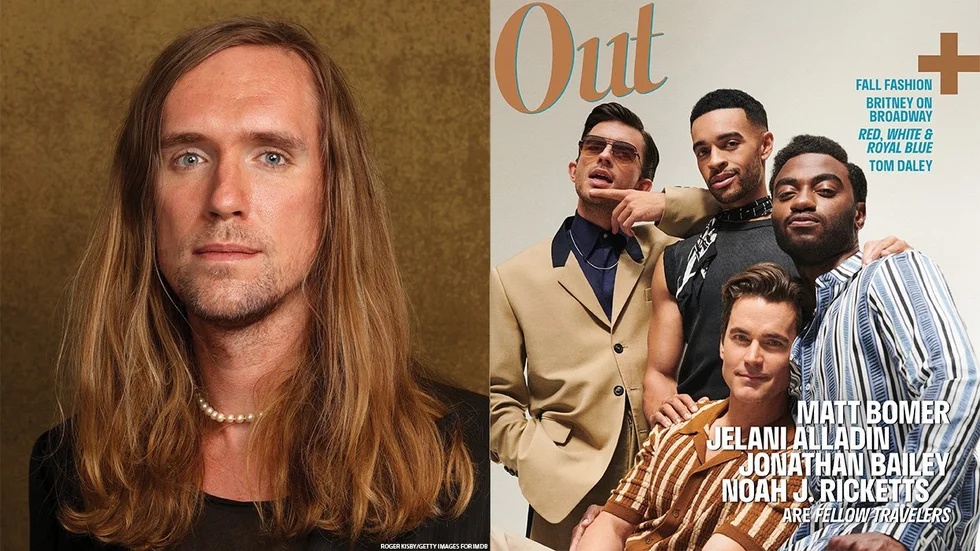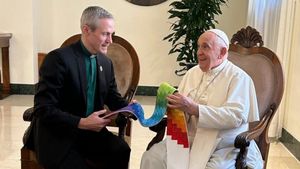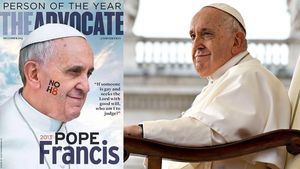When I was a teenager in the early aughts, there were no out guys at my high school. To find romantic interests, I went online to XY.com, the website for XY, a magazine for gay youth. XY.com had a chat feature in which a user could connect with others in their region. There in the chat rooms for northern and central New Jersey, I found my first boyfriend. Even better, I discovered a circle of friends in neighboring towns. They became my first found family.
Every weekend, my XY friends and I would gather at the mall to shop, watch movies, and learn from each other about what it meant to be queer. We talked about rejection from friends and family, boys we thought were cute, and helped each other come out. Memorably, we even staged our own prom once at a sleepover.
Without technology, this group would never have been possible. And as I grew older, I learned LGBTQ+ folks have always been at the forefront of using tech to connect. A mentor of mine from The Advocate, Christopher Harrity, recalled once how he used to phone into group calls to meet men. Or how during late nights in the West Village, a pay phone might ring as one walked by. Today, the mainstreaming of digital dating was made possible by apps like Grindr, which grasped early on the potential of smartphones to facilitate sex. And fun fact, I was the last editor of Gay.com, another chat and dating website I once frequented as a user, before the URL became a redirect to the Los Angeles LGBT Center.
The characters in Showtime’s Fellow Travelers — played by our cover stars Matt Bomer, Jonathan Bailey, Noah J. Ricketts, and Jelani Alladin — also navigate the task of forging queer connections, love, and alliances in eras spanning from McCarthyism to the AIDS crisis. Perversely, in what would become known as the Lavender Scare, the government also employed emerging technologies to find, surveil, and attempt to out men like them, destroying livelihoods and lives in the process. Throughout history and today, LGBTQ+ people know all too well the benefits as well as the grave dangers that can come with “advancement,” a fear the mainstream is now reckoning with as it grapples with the undertow of social media and artificial intelligence.
As you might have guessed, this is the Tech issue. And to help navigate the thorny terrain that can come from online meetups, we consulted with the experts at Unite. This app demonstrates how digital platforms can be used for good by connecting LGBTQ+ folks, many of them cut off from their social circles since lockdown, to support groups and mental health resources. And indeed, tech isn’t all bad news; we are living in an age of miracles when it comes to the development of devices that can help, enchant, and beautify. With this in mind, Out’s editors highlight some of our favorite gadgets as well as the latest tools to upgrade your grooming regimen.
Speaking of networks, Finance columnist Nick Wolny explores how gay pinup magazines like Physique Pictorial created a mail-in, mid-century queer community, which helped win political victories for the nascent gay rights movement. In light of the recent Supreme Court decision opening the door to anti-LGBTQ+ discrimination in commerce, Last Call writer Alexander Cheves stresses the importance of flexing the pink dollar in the modern era to support queer-owned businesses — like Nasty Pig, where he got his first jockstrap. The founder of Horse Meat Disco NY, Josh Wood, details how he mobilized a powerful queer community through music in a decade-long retrospective. And photographer Maxwell Poth shares lessons from his subjects in Young Queer America, a book showcasing portraits and essays from LGBTQ+ youth trying to find themselves and their place in the world today.
This is also the Fashion issue. In these pages, we crocheted away with out Olympian Tom Daley and discussed his venture in knitting, Made With Love. ORTTU is reviewed for its gender-creative looks. And creatives Vincint and Fabian Stumm model fall fashion as they share the impact of coming out on their careers.
Elsewhere in the entertainment world, the stars of Red, White & Royal Blue discuss their steamy gay rom-com between a British prince and an American first son. And two out actors from Once Upon a One More Time talk bringing the music of Britney Spears to Broadway with a fairy-tale queer romance. Frankly, we could all use a good escape these days, and the Travel section highlights coastal getaways accessible by train and plane.
I’m not sure how you’re receiving this letter, dear reader. It could be printed on a page mailed to your home, delivered to your tablet with a notification — or maybe, like me when I was a closeted teen, you’re sneaking a glimpse of a copy in your local library or Barnes & Noble. But here we are, a community connected by technology, words, and a will to fight for who we are and love. What a gift to have found one another. On any platform, I look forward to our next chat.
Sincerely,
Daniel Reynolds
Editor in Chief, Out magazine
@dnlreynolds
This article is part of the Out September/October issue, which is now available on newsstands. Support queer media and subscribe — or download the issue through Amazon, Kindle, Nook, or Apple News.





















































































